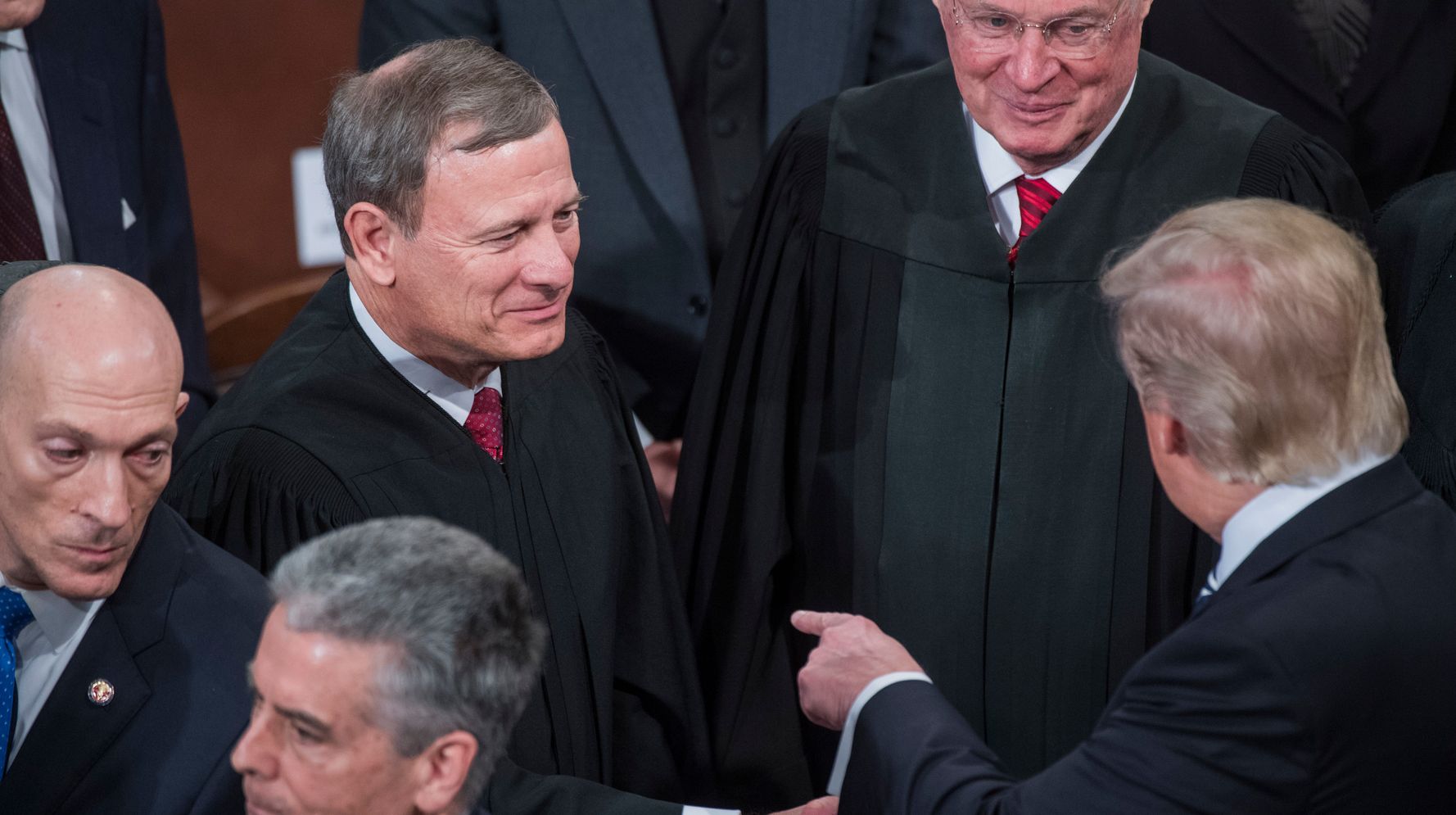[ad_1]
President Trump has threatened to use his emergency powers as president to build his $5 billion vanity wall. Can he do this?
A series of laws gives extraordinary emergency powers to the president — in a true emergency. Who decides what’s a true emergency? In the first instance, the president does. In the end, the courts do.
Traditionally, the courts have cut the president a wide berth when it comes to allowing extra-legal powers during a genuine national emergency. Lincoln suspended habeas corpus during the Civil War, when the South had invaded parts of the Union. Roosevelt, with no justification, was able to incarcerate patriotic Japanese-American citizens during World War II.
Courts upheld both. In a less urgent circumstance, when Truman tried to seize the steel mills to avert a strike in 1952 during the Korean War, the Supreme Court overruled him.
If you want a chilling account of the kinds of executive power that a president can lawfully wield during an emergency, have a look at Liza Goitein’s authoritative piece in The Atlantic. To some extent, Congress has been willing to rein in a president’s use of emergency powers, but only rarely.
Trump, presumably, could declare a national security emergency, reprogram money already appropriated, and order the Pentagon or the DHS to build the wall. Of course, it’s wildly far-fetched to characterize Mexican immigration as a national emergency warranting this sort of extraordinary authority. Illegal cross-border immigration has been declining. The real crisis is Trump’s failure to have of any sort of reasonable refugee policy.
Should Trump attempt to order a wall built based on his emergency powers, he would immediately be sued by members of Congress. The Democratic House would surely pass a law or a resolution of disapproval while the Republican Senate would be inclined to back the president. However, Trump’s move would be massively unpopular, both as policy and as an extra-legal power grab. That might give some Republican senators pause. It’s not hard to imagine the defection of several Republican senators, and a joint resolution blocking the wall. Whether Trump has to obey that resolution would also end up in court.
And here’s where the story gets really interesting. Any normal Supreme Court would find, as the 1952 Court did in the Youngstown Sheet and Tube case, that the president had exceeded his authority.
But this Supreme Court is far from normal. It has been a toady for far-right ideology and Republican policies. While lower courts overruled Trump’s orders limiting migration from predominantly Muslim countries as a patent violation of the First Amendment’s ban on religious discrimination, the Supreme Court upheld it by a 5-4 vote.

However, there are growing signs that Chief Justice Roberts has had a bellyful of Trump’s antics, and that he is looking to salvage the reputation of one of the few institutions of government that retains a semblance of legitimacy.
Even before Trump, Roberts voted with the court’s four liberals to uphold most of the Affordable Care Act. When Trump referred sneeringly last year to an “Obama Judge,†Roberts declared indignantly (and somewhat disingenuously), “We do not have Obama judges or Trump judges, Bush judges or Clinton judges … What we have is an extraordinary group of dedicated judges doing their level best to do equal right to those appearing before them.â€
If only. Trump shot right back:Â
Since then, Roberts sided with the court’s liberals on two occasions in December. He refused to allow High Court review of a lower court decision blocking state efforts to ban Planned Parenthood from Medicaid.
He also voted with the liberals to deny review of an appellate court decision that had blocked Trump’s effort to deny asylum reviews to refugees who cross the border illegally and then turn themselves in.Â
What would Roberts do if Trump spuriously asserted emergency powers to order the building of a wall in defiance of the usual legislative and budgetary progress?
This has little to do with ideology (where Roberts is a faithful conservative) and everything to do with incipient autocracy — an area where Roberts has been discovering his inner constitutionalist.
Trump is so mercurial that we may never find out. If we do, the result could be an important part of the evolution of John Roberts, and the defense of our democracy.
Robert Kuttner is co-editor of The American Prospect and professor at Brandeis University’s Heller School. His new book is Can Democracy Survive Global Capitalism?
Calling all HuffPost superfans!
Sign up for membership to become a founding member and help shape HuffPost’s next chapter
[ad_2]
Source link






